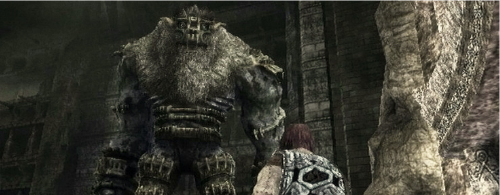

They say “familiarity breeds contempt”, but the more I hear that phrase, the more I dislike it. And not just because I’m a pathetic, desperate contrarian idiot – the phrase is wrong.
Wrong.
Familiarity doesn’t breed contempt. It breeds comfort, warmth, and eventually nostalgia. New things are awful, and potentially dangerous, and sometimes have questionable odours. Shun new things. Avoid them. Instead, you should wrap yourself in the comfortable blanket of the safe and familiar, and softly hum yourself into a dreamless sleep every night for the rest of your life.
That’s certainly what I’ve been doing. Torn from my usual routine of doing nothing and liking it, and made to work comparatively crazy hours in a clothes shop stockroom, I’ve almost abandoned all hope of having the time or interest to bother listening to new music ever again. This may seem like a large problem for a self-appointed “music critic” such as myself, but that fazes me none: for now, all I care about is the familiar caress of The Hold Steady’s glorious catalogue.
Seemingly, the voters in Music Radar’s Top 50 Riffs survey also prize familiarity, judging by the average age of the songs on display. It’s less a Top 50 List, more a “Retirement Home for the Riff and Famous”. Most of the songs in the Top 50 are old enough to be my father, if songs could procreate like that. But Korg don’t make those kinds of organs.
Anyway, of the 25 most adored riffs, precisely two come from the last decade: Muse’s “Plug In, Baby” and the White Stripes’ “Seven Nation Army”. Not that you could argue with the winning riff – “Voodoo Child” is about as good as guitar music gets, and Jimi Hendrix could have farted a riff worthy of inclusion – but the sheer paucity of contemporary riffage in the results raises some questions. Are they the top 50 because they’re the best? Or because they’ve been around long enough for everyone to know them, like musical versions of Marmaduke and Andy Capp?
I don’t particularly care either way – I’m not familiar with Music Radar’s readers, and therefore fear them and their opinions. What I do care about is video games, and I’ve spent most of what free time I’ve had this week playing them. More specifically, I’ve been playing the critically-acclaimed-but-sadly-ignored PS2 classic, Shadow of the Colossus, and more relevantly, thinking about its soundtrack. Because I’m a nerd: a paid-up, glasses-wearing, bad-beard-stroking nerd. Bully for me.
And now that I’ve made that assertion before you could, I’ll continue.
I’m not sure if people have really started noticing game soundtracks yet. Certainly, there’s a niche group of people who hear the Mario theme song in their heads every time they see some red dungarees, and I’m sure a billion and four suitably indoctrinated gamers could “do” the entire ridiculous rap from the end of Call of Duty: Modern Warfare, but beyond that, they seem to be the special cousins of film soundtracks, hidden away from the world in a dark corner of an abandoned warehouse.
But really, they’re fantastic in a way film scores could never be. As stirring as the Indiana Jones theme is, or Star Wars, or any John Williams piece you might care to mention, video game soundtracks will always have one thing over them: it was your soundtrack. That orchestral swell in Tomb Raider: Underworld? You made it happen by figuring out that mirror puzzle. No film soundtrack can feel as wondrous as the heroic rush of Koh Ohtani’s Shadow of the Colossus score, because it accompanied you climbing a forty-metre stone giant’s beard. They’re not just beautiful, and they’re not just familiar – they’re yours.
And if that didn’t convince you, Bioshock has a section where you whack people over the head with a wrench to the sound of Tchaikovsky’s “Waltz of the Flowers”. It’s sublime.


